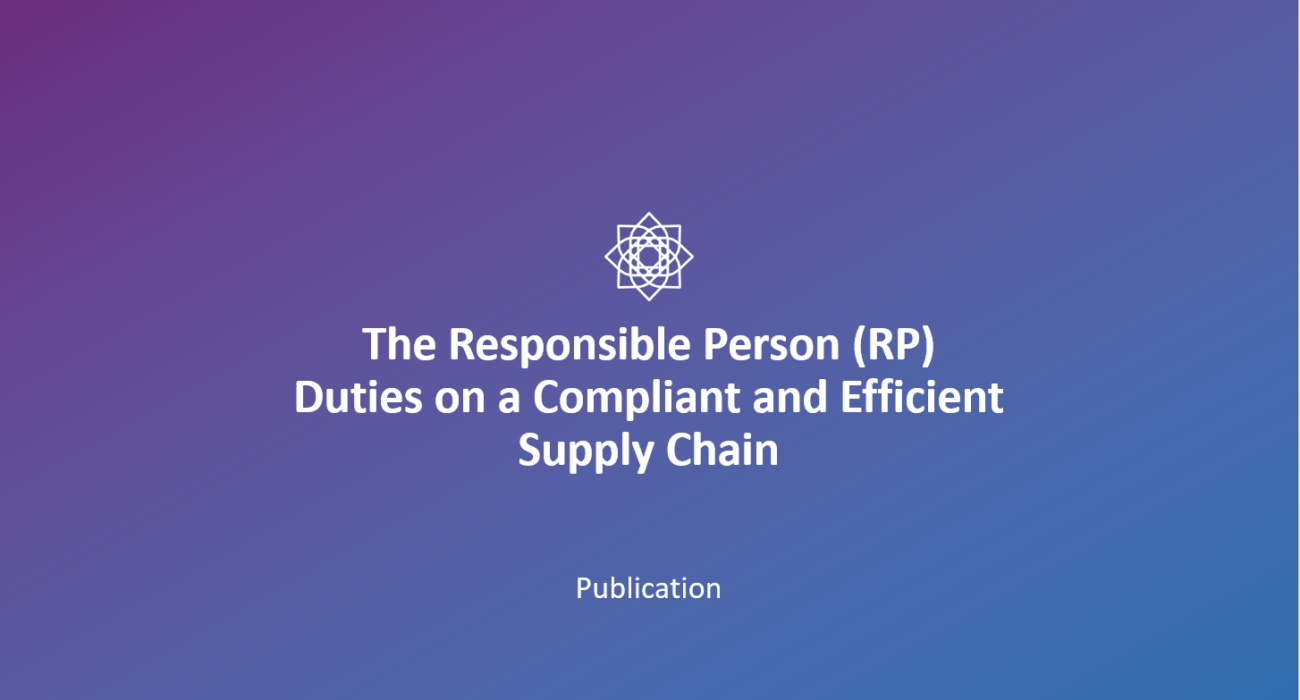The Responsible Person (RP) Duties on a Compliant and Efficient Supply Chain

The Good Distribution Practice Challenges in Wholesaling & Freight Forwarding of Medicines
The Responsible Person or Responsible Pharmacist, as referred to in some parts of Europe, is the person identified for ensuring the quality and safety of the medicinal product within their supply chain. The areas of particular focus for the RP is the warehouse, modes of transport and any intermediary through which medicines are stored and transferred until it reaches the end customer.
The RP’s role is fraught with challenges as many working within the supply chain, handle various types of commodities and not just medicinal products. Many that handle medicinal products during transportation by road, air or ocean, do not have the knowledge of the sensitivity of medicines to the environment, as those that work within the pharmaceutical manufacturing sector, and it’s normal to expect that.
The Global logistics network is extremely complex as it’s there to move all sorts of commodities across the globe. Medicines are just one of their commodities. Over the past 10 years there has been considerable investment in dedicating aspects of their business to healthcare. This is evident in their commitment to performing GDP audits of their transportation network, performing regular GDP training of their staff, controlling and monitoring temperature during transportation and also implementing a basic GDP Quality Management System.
Whether the RP works for the Marketing Authorisation Holder (MAH) of the medicinal product or for the logistics network (storage and distribution), these RP’s MUST work closely to understand what has been commercially agreed, with respect to the budget for transporting the medicines, and to find a solution on BOTH SIDES to ensure the quality and safety of the medicines in their supply chain.
When considering the appropriate solution for transport or storage, one must understand the product characteristics, it’s stability and cost value. Thereafter, the solutions that are available for storage and transport must be discussed with the RP in the logistics network to identify any risk associated with the supply chain for that medicinal product. This assessment must be documented and must highlight the potential areas where risks may actually end up with a deviation being reported during storage or transport. For example, temperature monitoring loggers sent with the medicinal product from the UK to Australia by air. During a stopover in Dubai, the temperature went above 25 degrees Celsius for 1 hour. As the freight forwarder had in error, not specified this as pharma shipment the airline was unable to perform a thorough investigation. With good communication channels between RP at MAH and at the logistics network, these types of issues would have been pre-empted and mitigating actions would have been implemented in the onset to prevent any compromise on the quality or safety of the medicinal product.
Forward thinking based on past experiences, documenting in an assessment (per type of product) and openness in discussions between RP’s would make the job of the RP far more compliant and efficient.
If you would like to inquire about our Responsible Person services, please email us at info@inglasia.com
